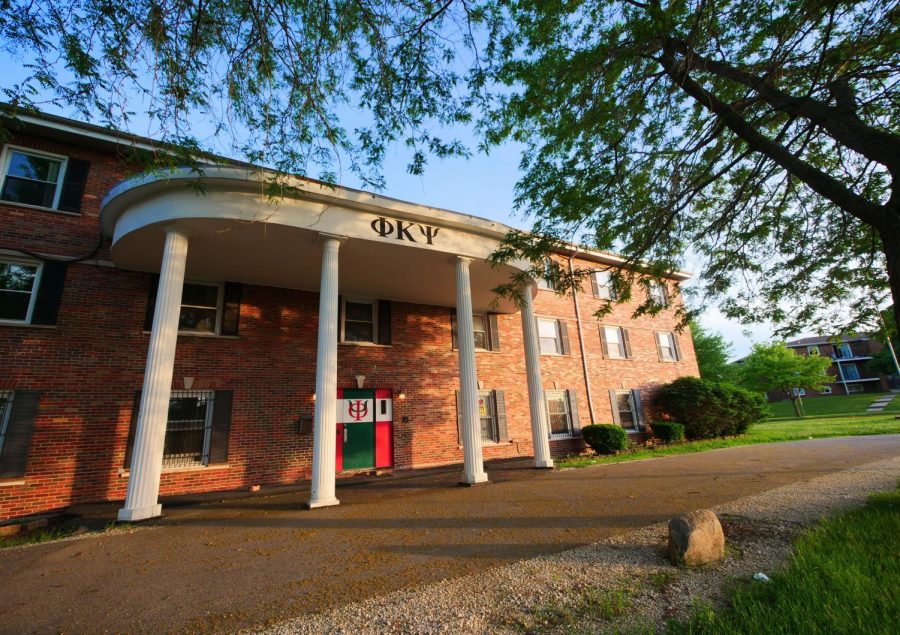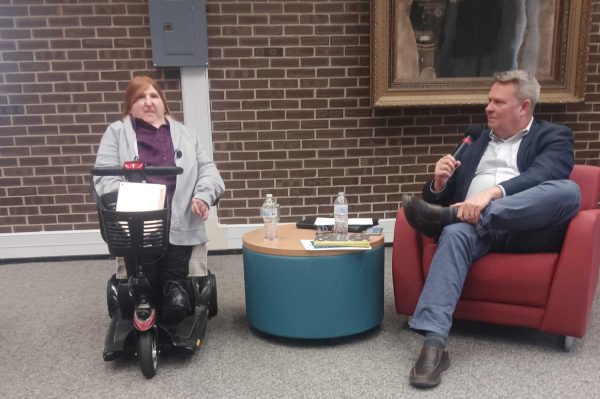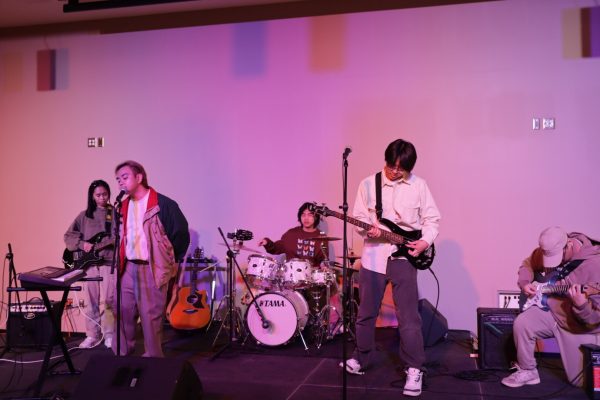How Greek organizations handled the COVID-19 pandemic
Phi Kappa Psi’s fraternity house remains empty as a result of NIU holding most of its fall courses online.
April 27, 2021
DeKALB – A year into the global COVID-19 pandemic, members of sororities and fraternities have experienced a change in conventional greek life routines.
Tri Sigma President Gianna Finnegan said many first-year students chose to stay home or attend community college for Fall 2020. Leading up to the fall semester, Tri Sigma anticipated 150 potential new members, and only 72 ended up going through, Finnegan said.
Allison Simon, vice president of the Beta Chapter for Alpha Phi Gamma National Sorority, Incorporated said being able to promote her sorority on campus allowed for more recruitments, so without that aspect her chapter saw a decline in recruitments as well.
There are currently seven people in her chapter house and 15 to 20 on campus, Simon said.
“It’s just easier to kind of go out on campus and talk to people in person,” said Jeff Bellino, president of Interfraternity Council.
Finnegan said despite a large drop, her chapter accumulated a pledge class of 13 members this year.
Finnegan said although Tri Sigma was successful at budgeting without raising their dues too dramatically, there were many empty beds they will need to compensate for once greek life returns to semi-normal. Due to the lack of new members and returning members who decided to stay home, there were many beds Tri Sigma did not fill this year.
A large portion of greek life happens to be socialization and human interaction, so fraternities and sororities held meetings over Zoom or Microsoft Teams, and had to find other ways to fundraise, Bellino, Finnegan and Simon said.
“It was a weird switch to get everyone to join a Microsoft Teams call and try to do business like voting on things, having real discussions and conversations,” Bellino said.
Finnegan said the sorority’s biggest fundraiser is “Spaghetti with Sigmas.” Those who signed up could eat unlimited pasta within four hours. She said there were online fundraising alternatives, and other fellow organizations were willing to donate to them, but there was less of an impressive outcome compared to fundraisers in-person.
To raise money and interact with interested women, Simon’s chapter made “good fortune goodie bags” with snacks, notes and tissues. By making handmade goodies, instead of food, it was a way to safely bring the sorority to people and raise money without seeing them, she said.
Having nearly every aspect of greek life through Zoom definitely stunted the sorority experience, Finnegan said, but if she had to tell herself anything a year ago it would be “trust the process and do it anyway,” even if it appears pointless if everything is online. This year has allowed her to grow closer with the few girls who did end up living in the house.
Simon would tell herself “hopefully this isn’t forever, so don’t feel like this is going to be the way of life and the way you are going to socialize with people.” She would also tell herself to be more heartfelt and deliberate with her messages to people online, because without the in-person element, “you can’t put your heart in the same way you used to.”













